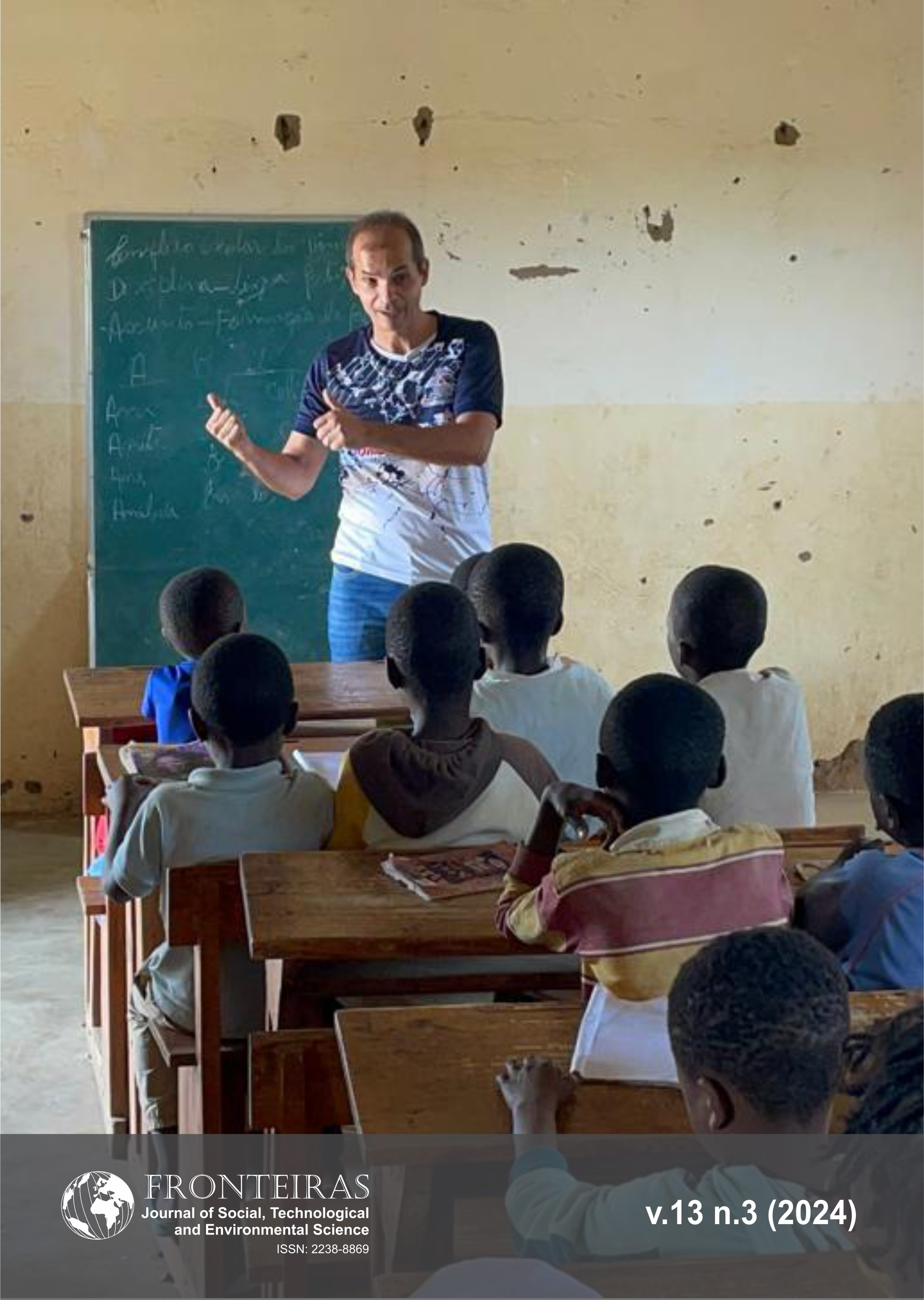Reflexões sobre a Avaliação na Perspectiva da Experiência de Licenciandos em Geografia
DOI:
https://doi.org/10.21664/2238-8869.2024v13i3.p125-134Keywords:
avaliação, formação de professores, observação participanteAbstract
Assessment is still a subject that generates controversies, conflicts and challenges in teacher training and also in its application. It is an action totally linked to teaching as well as learning. And because of this factor, there is a need to reflect on assessment through the experiences that future teachers are experiencing through participant observation and interviews. Therefore, this study aims to present some ideas and perceptions regarding assessment with students in initial training in a Degree in Geography. Having as a guiding question: How can participant observation help to understand experiences regarding the assessment of learning? Methodologically, the article is based on qualitative research, with data collection carried out through participant observation and interviews. However, there is still an evaluation model crystallized as a painful practice. And that still creates discomfort in students, and this can directly or indirectly reflect on teacher training and the exercise of the teaching profession.
References
BARREIRA C, BOAVIDA, J, Araújo, N 2006. Avaliação formativa Novas formas de ensinar e aprender. Revista Portuguesa de Pedagogia 3 (40):95-133.
COLOGNESE S A, MELO J L B 1998. A técnica de entrevista na pesquisa social. Cadernos de Sociologia 9: 143 – 159.
CONCEIÇÃO NETO B 2022. A avaliação em fases no Ensino De Geografia: uma proposta didática. 2022. Dissertação de Mestrado, Universidade Estadual do Norte do Paraná, Cornélio Procópio, 143 pp.
CONCEIÇÃO NETO B, MOURA J D P 2024. Por Uma Compreensão Fenomenológica Da Avaliação: notas para o fazer Docente Em Processo De Autoeducação. Anais ICOGHE (1): 64-66.
DAMIANI A L. 2008. A geografia e a construção da cidadania. In: A F A Carlos, A. F. A. (Org.) A Geografia na sala de aula. Contexto, São Paulo, p. 50 – 61
ESTEBAN M T. 2005 Ser professora: avaliar e ser avaliada. In: . Escola, currículo e avaliação. Cortez, São Paulo, p. 13-36.
FERNANDES D 2009. Avaliar para Aprender: Fundamentos, práticas e políticas. Unesp, São Paulo.
FILIZOLA R 2009. Didática da Geografia: proposições metodológicas e conteúdos entrelaçados com a avaliação. Base Editorial Curitiba.
GIL, A.C 2010. Como elaborar projetos de pesquisa. Atlas, São Paulo.
HADJI, C 2001. Avaliação Desmistificada. Artmed, Porto Alegre.
HOFFMANN J M L 2005. Pontos e contrapontos: do pensar ao agir em avaliação. 9. ed. Mediação, Porto Alegre:
HOFFMANN J M L 2001. Avaliação: mito e desafio: uma perspectiva construtivista. Mediação, Porto Alegre.
LUCKESI C C 2011. Avaliação da aprendizagem escolar: estudos proposições. . Cortez, São Paulo.
LUCKESI CC 2018. Avaliação em Educação questões epistemológicas e práticas. Cortez, São Paulo.
MARQUES J P A 2016.” observação participante” na pesquisa de campo em Educação. Educação em Foco A 28: 263-284.
MAY T 2004. Pesquisa social: questões, métodos e processos. ArtMed Porto Alegre.
MINAYO M C S 2013 Pesquisa social: teoria, método e criatividade. 33. Ed, Vozes, Petrópolis.
RABELO, K S P 2010 A Avaliação da aprendizagem no processo de ensino em Geografia. Ateliê Geográfico A 4 (4): 222-249.
ROXO L C 2010. Fenomenologia e Educação: uma crítica à redução da pedagogia a metodologia. Peri, A2 (2): 106-118.
SANMARTÍ 2009. Avaliar para aprender. Artmed, Porto Alegre.
THOMPSON P 1998. A voz do passado. Paz e Terra, São Paulo
VILLAS BOAS B M F 2005. Portfólio, avaliação e trabalho pedagógico. Papirus, Campinas.
VILLAS BOAS B M F 2008 Virando a escola do avesso por meio da avaliação. Papirus, Campinas,
VILLAS BOAS B M F 2011. Compreendendo a Avaliação Formativa. In B M F V BOAS. Avaliação Formativa: Práticas Inovadoras. Papirus, Campinas, p. 13-42.
Downloads
Published
How to Cite
Issue
Section
License
Copyright (c) 2024 Breno da Conceiçao Neto, Jeani Delgado Paschoal Moura

This work is licensed under a Creative Commons Attribution-NonCommercial 4.0 International License.
This journal offers immediate free access to its content, following the principle that providing free scientific knowledge to the public, we provides greater global democratization of knowledge.
As of the publication in the journal the authors have copyright and publication rights of their articles without restrictions.
The Revista Fronteiras: Journal of Social, Technological and Environmental Science follows the legal precepts of the Creative Commons - Attribution-NonCommercial-ShareAlike 4.0 International. 


